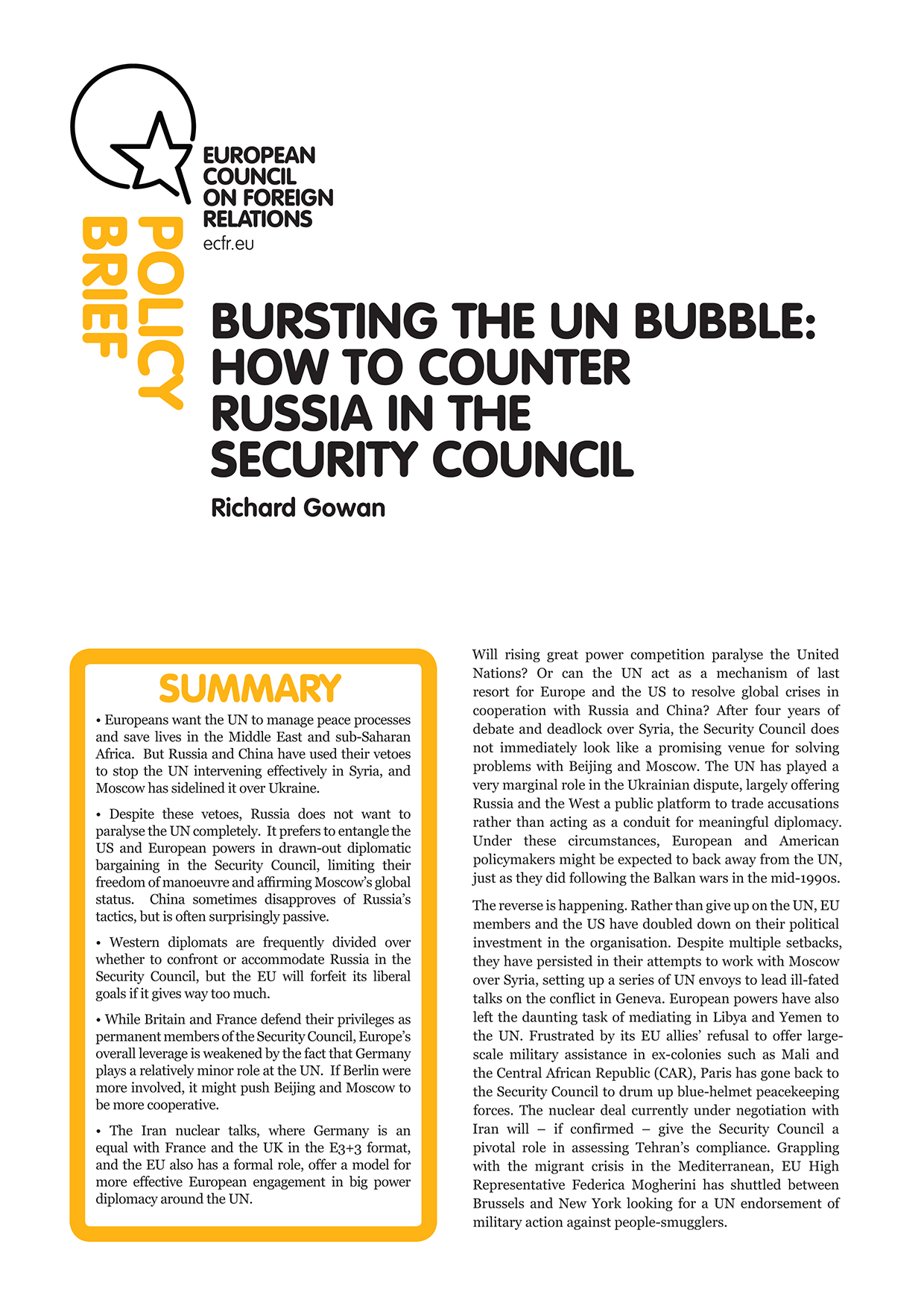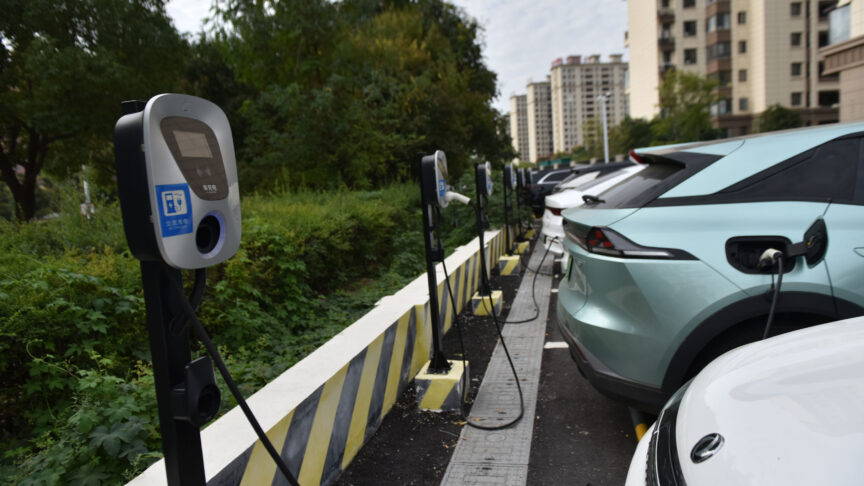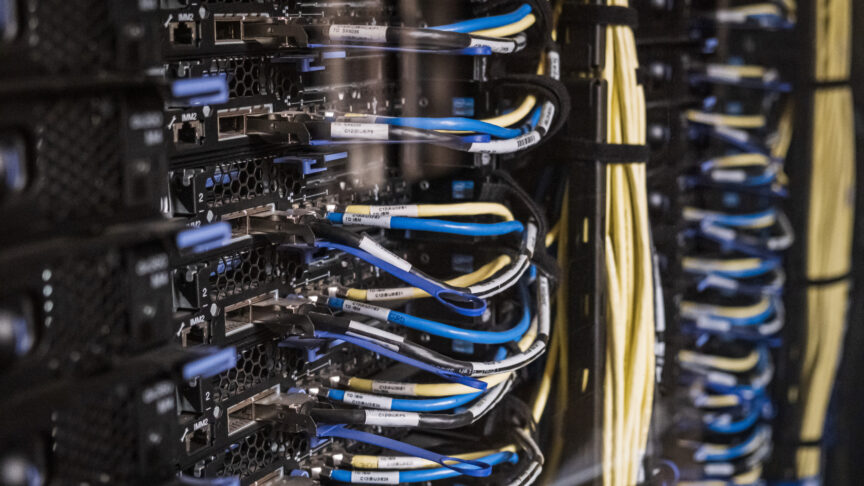Bursting the UN bubble
Europe must learn the lessons of the Iran negotiations and boost Germany’s role at the UN Security Council to combat Russian blocking tactics
Europe must learn the lessons of the Iran negotiations and boost Germany’s role at the UN Security Council to combat Russian blocking tactics
‘Bursting the UN bubble argues that EU members and the US have invested increasing amounts of political capital in the UN, at the same time as Russia actively and China passively obstruct action on key issues at the Security Council.
Gowan maintains that the EU and US still need to participate in the UN, highlighting some successes over second order issues and its use as a forum for rapprochement with Russia and China. But he contends that an effective Russian entanglement strategy has prevented significant interventions from the UN on important global issues like Syria and Ukraine.
To break this deadlock, Gowan suggests aligning the UN’s power balance more closely to that of the world outside, most prominently by increasing, albeit informally, the role of Germany in the UN. The E3+3 negotiations with Iran could serve as a model for greater German engagement and signal to Moscow and Beijing that diplomatic games at the UN may put their most important European relationship at risk.
Richard Gowan, author of ‘Bursting the UN bubble’ said:
“After four years of debates and deadlocks over Syria, the Security Council does not immediately look like a promising venue for solving problems with Beijing and Moscow, but rather than give up on the UN, EU members and the U.S. have doubled down on their political investment in the organization.
“In many ways this makes sense. The EU’s member states are instinctively committed to “effective multilateralism”, working through the UN still often pays off and the Security Council serves as a potential channel for continued cooperation with Moscow.
“Nevertheless, the EU must recognize that efforts to pursue its interests through the UN risk backfiring. If European powers want to preserve the UN as a credible forum for addressing global security threats and managing great power relations, they must ensure that they do not let Russia set the terms for handling future crises.
“To counteract the ‘Russification’ of the Security Council the EU’s top power, Germany, should be brought into closer coordination with its two permanent Security Council members, France and the UK, based on the model of the E3+3 negotiations with Iran.”
The European Council on Foreign Relations does not take collective positions. ECFR publications only represent the views of their individual authors.



